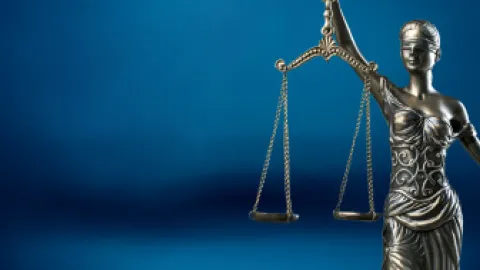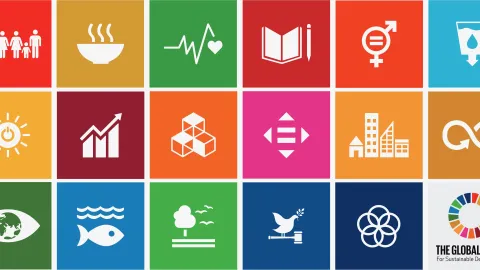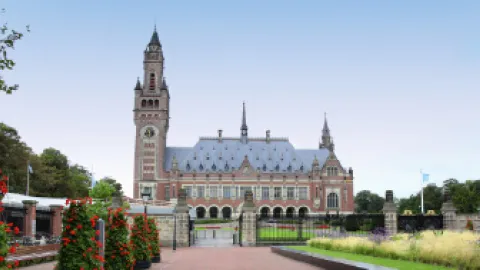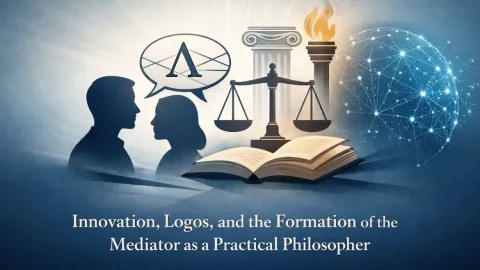"Don't Just Do Something. Sit There." The Power Of Silence
December 21, 2018
“As they sometimes say around Kyoto, 'Don’t just do something. Sit there.'" The Art of Stillness, Pico Iyer
Recently I had the good fortune of watching fellow blogger, John Sturrock QC, mediate. In the days which have followed, I’ve been reflecting on what I learnt from observing the mediation. What helped the parties in this protracted and complicated matter to better address their differences? There was the careful and continuous choreography, designed with the parties, of who would speak to whom, and when. There was the mediator’s deft use of language which took the spice out of words used earlier by the parties. And there was the use of perfectly-timed humour to bring energy and ease into the room.
There were, of course, many other skills and techniques used but in this post I’d like to focus on a skill which I continue to find particularly challenging and counter-intuitive: the skill of saying nothing. I’ve learnt the following about the art, and impact, of saying nothing.
1. It isn’t the easy option. There were many times during the mediation when I would have leapt in and filled the awkward silence. John appeared to know better. At pivotal moments in the mediation, at those moments which were particularly uncomfortable for the parties, they would glance over at the mediator hoping that he’d take over. And at those key moments the mediator would silently direct them to the other party, with an open hand or a nod, or gently look down, make a few notes and in so doing would nudge the party to continue. And continue they did. How frequently it seemed that key progress was made shortly after those challenging moments.
2. It conveys the mediator’s expectations of the parties. As Rick Weiler wisely noted in his recent post, “in the mediation process (and, frankly, life beyond) … people and events rise or fall to meet your expectations.” By not filling the awkward silence, the mediator is conveying her/his expectation that the party can find a way to move forward. And in every such instance, with the mediator gently and firmly holding the silence, the party then found the words, and a way, to persevere.
3. It encourages the parties to take responsibility for the dispute and its resolution. At those pivotal moments, while the mediator may not have filled the silence with words, there was still communication between the mediator and the party. A certain look, perhaps even an encouraging and understated smile, told the party that the mediator wouldn’t be stepping in right now and that it was down to the party to continue.
4. It enables the mediator to listen to all that is said, and not said. By enabling the parties to speak freely, punctuated with the various pauses which were needed, a lot of ground was covered. And attentive listening revealed the key themes which mattered to the parties and to which they frequently returned. One example arose early in the mediation. When he did speak, the mediator distilled one party’s opening observations into just three key words: justification, recommendation and help. Those three words grounded the rest of the mediation and provided useful direction when it was needed later in the day.
And, of course, a mediator’s role is not just to listen for what is being said, but also for what is not being said. As Rumi wrote, “There is a voice that doesn’t use words. Listen.”
So, if I can appreciate the value which saying nothing can bring, why do I continue to find it so hard to hold myself back and sit quietly and comfortably in the silences? Perhaps, it stems from a fear of not doing enough or, at least, not being seen to be doing enough. And perhaps that discomfort is quite normal given my limited experience in mediating.
As John commented after the mediation: “Of course, by saying little or nothing, the mediator may also be acknowledging that he or she cannot possibly know or understand everything about the matter in hand - and recognising that he or she needs to help those who do understand it to put their best foot forward. Being released from a need to try to demonstrate an understanding of all of the detail may be liberation in itself.” It may be that such liberation can only come with considerable experience and the skill and confidence which that can bring. That liberation may be some time away for me but it’s reassuring to know that I can aim for that and that it is a strength rather than a weakness.
As I look ahead to the new year and I think about the changes I might make, I’ll be reminding myself that, paradoxically, by saying less I may actually be doing more. And that, of course, has resonance far beyond the mediation room.
You may also like










Michael J Bond
Thank you, Anna, for this interesting post. It reminds me of the adage that it is better to keep your mouth shut and allow people to believe you are a fool than to open your mouth and dispel all doubt. Best wishes to all for a very Merry Christmas and prosperous New Year from the Pacific Northwest frontier.
Charlie Irvine
Thanks Anna for this simple but profound insight. As you say, it's surprisingly hard to do. Under the bonnet of saying nothing is the critical mediator skill of noticing, at times of 'strategic ignoring'. Thanks too to John for opening his practice to observation. Charlie
Dr Rosemary Howell
Wise and thoughtful advice. Sometimes doing nothing, at least for now, is the very best outcome. Thank you for such a useful blogpost Anna.